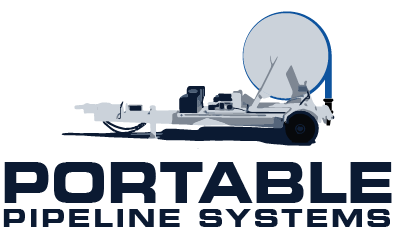Wastewater will potentially play a significant role in supplementing our growing water demand, energy production, and even sustainable agriculture.
Good water quality is the lifeblood for our health, but also our thriving economies. The water problems we are facing today though, is that our population is increasing, pollution is at an all time high and our water delivery systems are not only growing older but they are getting far more complex. In essence, it’s just harder to get clean water to the people who need it.
A potential solution to this problem is how we manage our wastewater. The solution not only extends to how we manage the quality water services, but also how we can treat it. Our goal is not to worry about the chemical, physical and biological components so it can be reused to supplement our growing potable water demand.
Our initial inclination as a society is to either discard or ignore wastewater. While that may have worked in the past, that outdated model has to evolve as our ecosystems evolve around us.
The Hard Challenges and Many Areas Of Opportunity Wastewater Presents For Our Ecosystem
Safe and sufficient water is inexorably linked to how our wastewater is managed.
The challenges we face with wastewater is that in order to turn it into potable water, that wastewater must be carefully managed during every part of the water treatment. That treatment is extremely complex and the regulations surrounding wastewater treatment are relatively prohibitive. In other words, the water quality standards are extremely high – as they should be!
This doesn’t mean it can’t be done, but, rather, it is time consuming and expensive to treat it appropriately.
Further complicating this process is the rapid increase in our global population which means a commensurate increase in wastewater as well as the overall pollution associated witih the creation of wastewater.
What’s more, our water supply is starting to see signs of untreated sewage, heavy metals, farm runoff and industrial water and that is degrading the overall quality of water for the global population. In fact, 80% of wastewater flows back into our ecosystem without being treated or reused. This is contributing to 1.8 billion people using a source of drinking water which is contaminated which puts them at risk of contracting diseases such as cholera, dysentery, typhoid, and even polio.
Our wastewater and and the effect on the water quality in our cities
Wastewater commonly flows directly into the closest water drains or drainage channels, and usually without treatment – especially large populations in third world countries.
On the other hand, wastewater used by municipalities in the United states for watering green spaces or to clean common areas like streets does not need to be treated to a potable standard. This is beneficial because we can use that treated water, and not run the tap water supply down by using it to do the same job.
When we look at it from this point of view, recycled wastewater may help combat other challenges including food production and industrial development.
Wastewater and the effect on our industries
Our society has put increased pressure on industries to not only reduce pollution over the past few years, but also to treat the water they use before it is discharged back into the global water supply.
Many companies are seeing how wastewater can be used within the business itself or via multiple businesses through a process called ‘industrial symbiosis’. Because it doesn’t need to be of drinking water quality, these companies are seeing a strong incentive to use in-house wastewater simply based on cost savings alone.
For instance, companies are starting to use processed water for cooling or heating their buildings. Furthermore, these companies are also using water from roof collections for everyday uses like flushing toilets, watering the grass or vehicle cleaning.
Once again, this lowers the stress level on the potable water supplies, and makes for a much more efficient use of resources, time, and energy.
Wastewater and the benefits on our agriculture
Chemical fertilizers and pesticides have seen an increase in recent years, and this increases the potential of environmental pollution coming from our farm systems.
This level of irrigation is problematic, especially for third world countries, because it is informing what kind of water these populations are consuming. By improving wastewater management, we will see a direct correlation to workers’ health simply because we are reducing the risk of exposure to various harmful pathogens.
As such, if applied safely, wastewater is a valuable source of both water and nutrients. This can contribute to the water supply, as well as food security and livelihood improvements.
Be Safe – Think Ahead
At PPS, we value preparation, trust, and integrity with our clients. We provide systems and solutions, not price only products. Though we do not claim to have every solution for every disaster, we encourage clients to be open about their solutions and include all possible vendors. When in a disaster situation, a city, county, state, or government needs to consider all options.
As such, we guide our clients to prepare in advance for the worst, be it earthquake, flood, fires, or just an aging infrastructure utilizing lay flat hose. See our website for our layflat hose solutions.




 Sales Office Location
Sales Office Location
 sales@portablepipelinesystem.com
sales@portablepipelinesystem.com